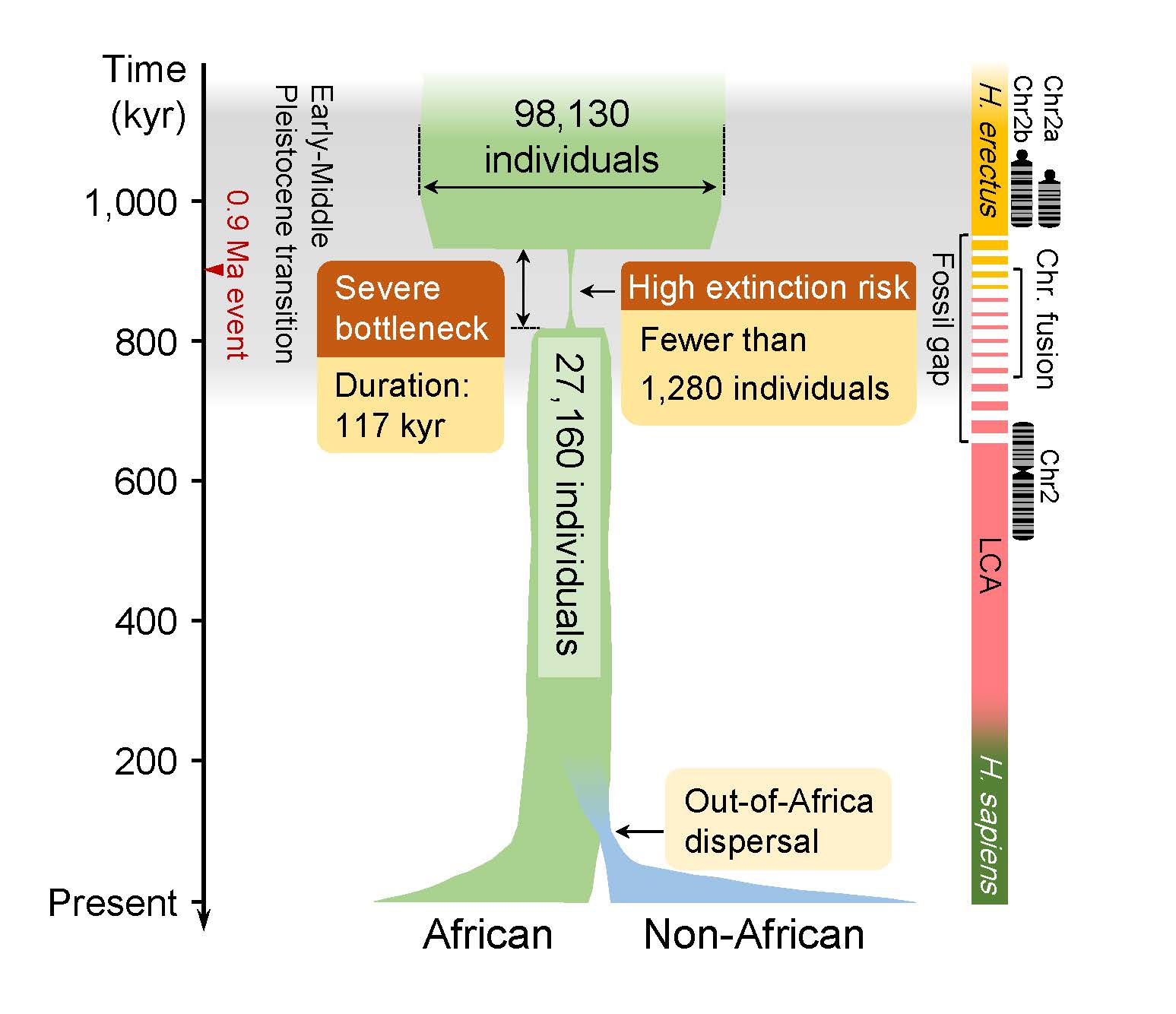From Popular Science, August 31:
Only 1,280 breeding individuals may have existed at this dramatic era of human history.
A team of scientists from the United States, Italy, and China may have finally explained a large gap in the African and Eurasian fossil record. According to a model in a study published August 31 in the journal Science, the population of human ancestors crashed between 800,000 and 900,000 years ago. They estimate that there were only 1,280 breeding individuals alive during this transition between the early and middle Pleistocene. About 98.7 percent of the ancestral population was lost at the beginning of this ancestral bottleneck that lasted for roughly 117,000 years, according to the study.
During the Late Pleistocene, modern humans spread outside of the African continents and other human species like Neanderthals began to go extinct. The Australian continent and the Americas also saw humans for the first time and the climate was generally cold. This era is best known for its massive ice sheets and glaciers that shifted around the planet and shaped many of the landforms we see on Earth today..
In this study, the team used a new method called fast infinitesimal time coalescent process (FitCoal), as a way to determine ancient demographic inferences with modern-day human genomic sequences from 3,154 people.
“The fact that FitCoal can detect the ancient severe bottleneck with even a few sequences represents a breakthrough,” study co-author and University of Texas Health Science Center at Houston theoretical population geneticist Yun-Xin FU said in a statement.
FitCoal helped the team calculate what this ancient loss of life and genetic diversity looked like utilizing present-day genome sequences from 10 African and 40 non-African populations.
“The gap in the African and Eurasian fossil records can be explained by this bottleneck in the Early Stone Age chronologically,” study co-author and Sapienza University anthropologist Giorgio Manzi said in a statement. “It coincides with this proposed time period of significant loss of fossil evidence.”

The African hominin fossil gap and the estimated time period of chromosome fusion is shown on the right. CREDIT: Science.
....MUCH MORE